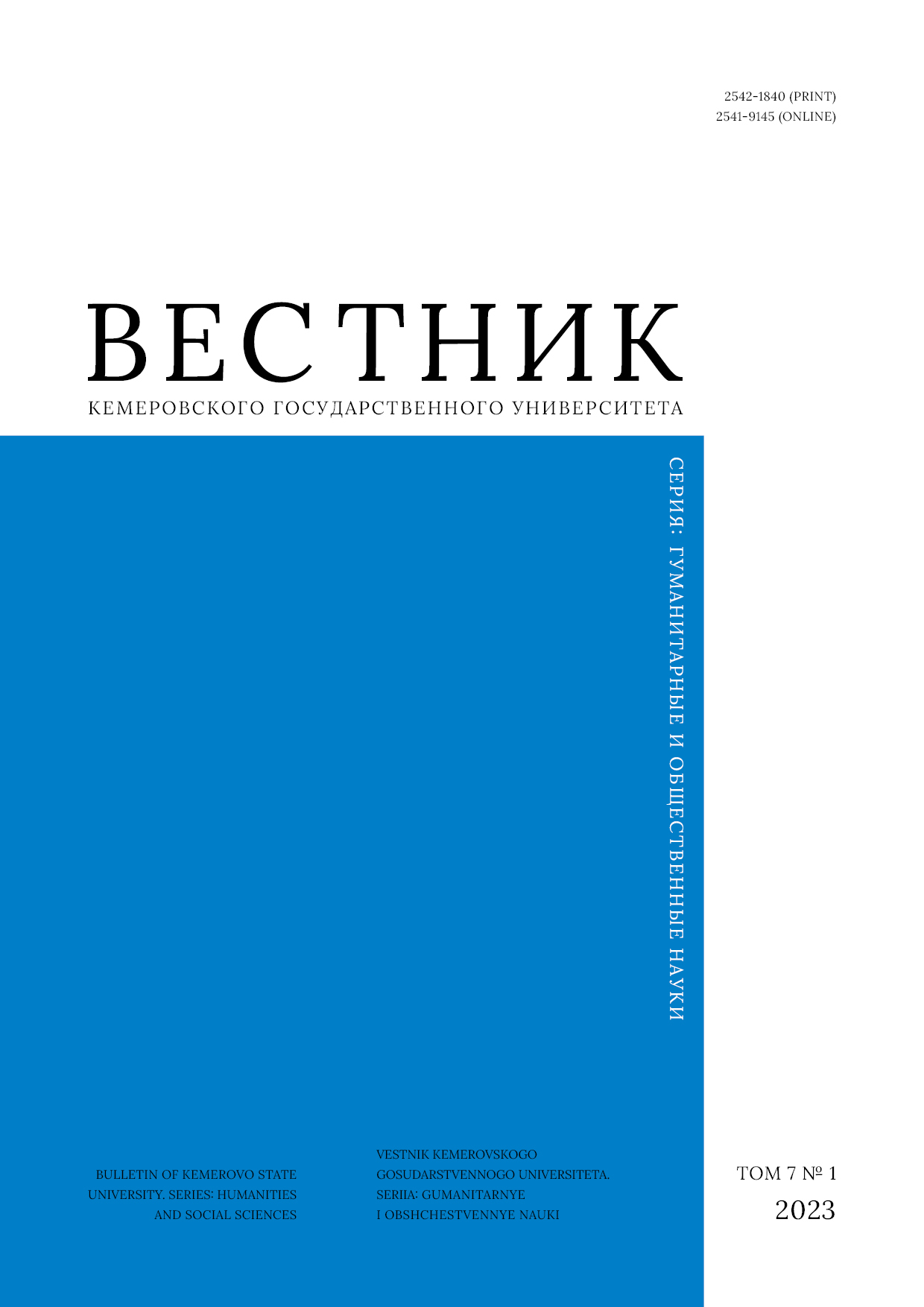Khabarovsk, Russian Federation
Vladivostok, Russian Federation
Khabarovsk, Russian Federation
Khabarovsk, Russian Federation
Critical thinking can be developed as part of reading comprehension. This study involved 57 university students from the Pacific National University. They worked with methodological texts to determine the topic, write a secondary text, create a cinquain, formulate hypotheses, and project the new material onto their own academic experience. The article introduces a new subjective approach to teaching text comprehension to university students. The approach is based on psychological foundations and the interaction between teaching staff and students. It develops the ability to generate new meaning and relations, as well as to classify various phenomena. The article also reveals the ways of understanding a text as a sign complex and offers some new diagnostic methods that treat text comprehension both as a process and a result. The authors also identified empirical indicators to control the dynamics of comprehension development. The experiment showed positive dynamics in the critical thinking skills of students who practiced reading comprehension based on methodological texts.
psychology of learning, psychological researches, understanding of the text, narrative text
1. Bakhtin M. M. Toward a philosophy of the act. Philosophy and sociology of science and technology: yearbook 1984-1985, ed. Frolov I. T. Moscow: Nauka, 1986, 8-160. (In Russ.) EDN: https://elibrary.ru/VWTSPT
2. Kurochkina L. Ya. Philosophical problems of socio-humanitarian sciences, 2nd ed. Voronezh: VSTU, 2010, 197. (In Russ.) EDN: https://elibrary.ru/QWZSPN
3. Mekhtiev V. G. The origins of the crisis in humanitarian knowledge. The phenomenon of the crisis in the context of modern humanitarian knowledge, ed. Moskvina N. B. Khabarovsk: FESHU, 2009, 4-7. (In Russ.) EDN: https://elibrary.ru/QOAMYN
4. Mukhametzyanova L. Yu. Cognitive dialogue as a human-forming strategy of education. Kazan Pedagogical Journal, 2021, (2): 34-41. (In Russ.) https://doi.org/10.51379/KPJ.2021.146.3.004
5. Talwar A., Tighe E. L., Greenberg D. Augmenting the simple view of reading for struggling adult readers: a unique role for background knowledge. Scientific Studies of Reading, 2018, 22(5): 351-366. https://doi.org/10.1080/10888438.2018.1450410
6. Mosunova, L. A., Borzova, T. V. Development of the national cultural identity of students of humanitarian specialties in the learning process. Perspektivy nauki i obrazovania, 2021, (6): 141-154. (In Russ.) https://doi.org/10.32744/pse.2021.6.10
7. Popper K. R. Objective knowledge. An evolutionary approach. Moscow: Editorial URSS, 2002, 384. (In Russ.)
8. Miyamoto A., Pfost M., Artelt C. The relationship between intrinsic motivation and reading comprehension: mediating effects of reading amount and metacognitive knowledge of strategy use. Scientific Studies of Reading, 2019, 23(6): 445-460. https://doi.org/10.1080/10888438.2019.1602836
9. Leushina N. A. Metacognitive knowledge in teaching reading in English to engineering students: role, components, and ways of development. Nepreryvnoe obrazovanie: XXI vek, 2020, (4): 52-64. (In Russ.) https://doi.org/10.15393/j5.art.2020.6347
10. Borzova T. V. Psychology of teaching comprehension to students. Khabarovsk: PNU, 2018, 200. (In Russ.)
11. Kuzina N. V. Personal narrative, accentuations, and narrative psychotherapy. New trends of global scientific ideas. 2016: Proc. 10th Intern. Sci.-Prac. Congress of Pedagogues, Psychologists and Medics, Geneva, 10 Mar 2016. Geneva: European Association of pedagogues and psychologists "Science", 2016, vol. 1, 312-315. (In Russ.) EDN: https://elibrary.ru/VTNKPB
12. Glazkov A. V., Glazkova E. A. Narrative texts and their use in comparative reading. Russkii yazyk v shkole, 2017, (1): 17-22. (In Russ.) EDN: https://elibrary.ru/XWWMOV
13. Znakov V. V. Thesaurus understanding and narrative understanding of events as problem of human existence. Metodologiia i istoriia psikhologii, 2010, 5(3): 105-119. (In Russ.) EDN: https://elibrary.ru/QAAUET
14. Borzova T. V. Narrative understanding of oneself and reality in the process of education. Izvestiia Samarskogo nauchnogo tsentra Rossiiskoi akademii nauk, 2015, 17(1-1): 72-78. (In Russ.) EDN: https://elibrary.ru/TORBTJ
15. Abramovskikh E. V. "Narrative transformations" in texts of non-classical artistic paradigm (cinema, literature). Nauchnyi dialog, 2018, (1): 71-82. (In Russ.) https://doi.org/10.24224/2227-1295-2018-1-71-82
16. Knyazeva H. N., Kurdyumov S. P. Foundations of synergetics. Blow-up regimes, self-organization, tempoworlds. St. Petersburg: Aleteiia, 2002, 414. (In Russ.) EDN: https://elibrary.ru/RAALEH
17. Prigozhin I. R. Is the future set? 2nd ed. Izhevsk: Institute of Computer Science, 2005, 240. (In Russ.)
18. Talanchuk N. M. System-synergetic philosophy and the concept of neo-pedagogy: strategemes for the development of pedagogical theory and practice. Kazan: ISSE RAE, 1996, 71. (In Russ.)
19. Kulikova L. V., Mikalauskaite E. Iu. Xeno-narrative texts in literary and narrative communication: functional and pragmatic approach. Communication Studies (Russia), 2020, 7(2): 403-418. (In Russ.) https://doi.org/10.24147/2413-6182.2020.7(2).403-408
20. Kolmogorova A. V. The narrative specific of emotional Internet-texts in Russian. Cognitive studies of language, 2020, (2): 610-613. (In Russ.) EDN: https://elibrary.ru/SOOARL
21. Elfimova M. M. The narrative as an instrument for arbitrary sense formation. Voprosy Psikhologii, 2018, (1): 90-103. (In Russ.) EDN: https://elibrary.ru/YVAYIN
22. Vasilyuk F. E. Structure and specifics of the theory of understanding psychotherapy. Moskovskii psikhoterapevticheskii zhurnal, 2008, (1): 5-33. (In Russ.) EDN: https://elibrary.ru/KAUFHH
23. Erzählen und moral. Narrativität im spannungsfeld von ethik und aesthetik, Hrsg. Mieth D., Pfaff D. Tübingen: Attempto, 2000, 286.
24. Bruner J. Self-making and world-making. Journal of Aesthetic Education, 1991, 25(1): 67-78. https://doi.org/10.2307/3333092
25. Daiute C. Narrating refuge. Europe′s Journal of Psychology, 2017, 13(1): 1-15. https://doi.org/10.5964/ejop.v13i1.1386
26. Webster J. D., Vowinckel J., Ma X. The meaning of temporal balance: does meaning in life mediate the relationship between a balanced time perspective and mental health? Europe′s Journal of Psychology, 2021, 17(1): 119-133. https://doi.org/10.5964/ejop.2415
27. Turusheva Yu. B. Narrative as cultural mediator in personality development: looking through the lens of cultural-historical psychology. Kul′turno-istoricheskaya psikhologiya, 2016, 12(2): 24-32. (In Russ.) https://doi.org/10.17759/chp.2016120203
28. Koschorke A. Wahrheit und erfindung: grundzüge einer allgemeinen erzähltheorie. Frankfurt am Main: S. Fischer, 2012, 480.
29. Šimleša M., Guegan J., Blanchard E., Tarpin-Bernard F., Buisine S. The flow engine framework: a cognitive model of optimal human experience. Europe's Journal of Psychology, 2018, 14(1): 232-253. https://doi.org/10.5964/ejop.v14i1.1370


















